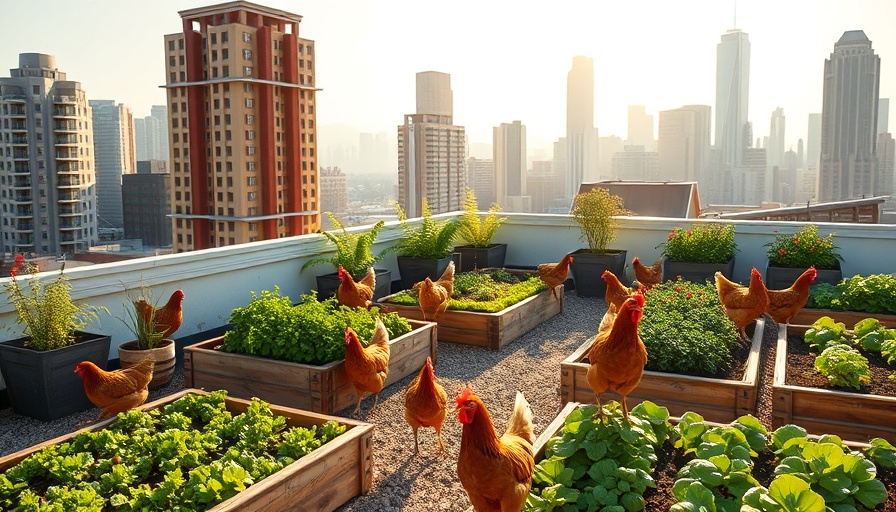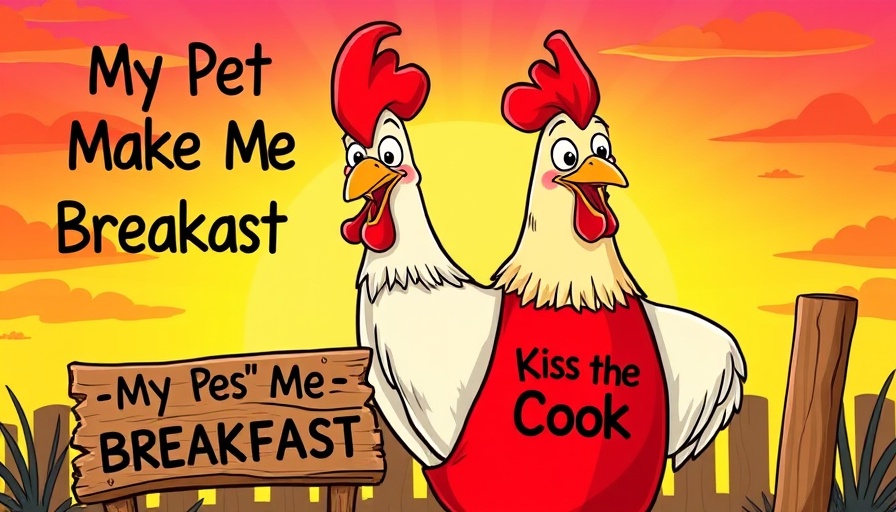
New York's Urban Chicken Revolution: A Growing Trend
In the heart of New York City, a unique trend is quacking its way into urban backyards: raising chickens. From Brooklyn brownstones to Bronx backyards, city dwellers are embracing these feathered companions, drawn not just by the allure of fresh eggs, but also by the joy of reconnecting with nature in an urban landscape. Chickens are becoming more than pets; they are part of a burgeoning movement that melds sustainability, urban farming, and community engagement.
Legal Framework: What Every Chicken Enthusiast Needs to Know
Raising chickens in New York City is generally permissible under Health Code Article 161.19, allowing residents to keep hens in their backyards without needing permits, provided they avoid creating nuisances. This is particularly appealing for urbanites who long for a touch of rural life amidst the skyscrapers. However, it’s crucial to remember that while hens can freely roam, roosters are prohibited and can result in fines. Moreover, respecting neighbors by mitigating smells and noise is paramount in maintaining a harmonious coexistence.
Practical Considerations: Starting Your Chicken Coop
For those interested in starting their own flock, several practicalities must be considered. Initial setup costs can soar, with chicks costing under $10 each and coops ranging anywhere from a couple hundred to thousands of dollars, depending on whether you purchase or build one. Selecting hardy breeds known for their egg-laying capabilities, such as the Rhode Island Red or Buff Orpington, could yield daily rewards. Future chicken owners should prepare also for ongoing care—a commitment that includes feeding, watering, and daily health checks to prevent illness and maintain flock vitality.
The Emotional Impact of Urban Chickens
Many residents report unexpected emotional benefits from raising chickens. Owners like Melanie and Phil, who find joy not only in the fresh eggs but in the companionship offered by their flock, have highlighted the therapeutic value of keeping chickens. They bring a sense of responsibility, routine, and delight that enhances mental well-being. In many ways, these birds serve as the ideal urban pet, requiring less space than dogs and offering casual companionship alongside tangible rewards.
Community Engagement: A New Era of Urban Agriculture
The embrace of chicken-keeping is not just about nutritional self-reliance; it’s a part of the larger urban agricultural movement seeking to reconcile city living with sustainable practices. As communities come together to share knowledge and resources, chicken owners are fostering connections that extend beyond their coops into broader social issues, promoting discussions about food security, environmental consciousness, and community resilience.
Conclusion: Join the Urban Chicken Craze!
Whether you reside in a sprawling suburb or a tiny Brooklyn apartment, the opportunity to partake in the urban chicken trend is alive and well. From fresh eggs to a rewarding hobby, chickens present numerous benefits for New Yorkers. If you’re curious about experiencing this unique lifestyle choice, consider starting small. Connect with local chicken-raising groups and workshops; the community is growing, and so is the support for urban agriculture!
 Add Row
Add Row  Add
Add 




Write A Comment